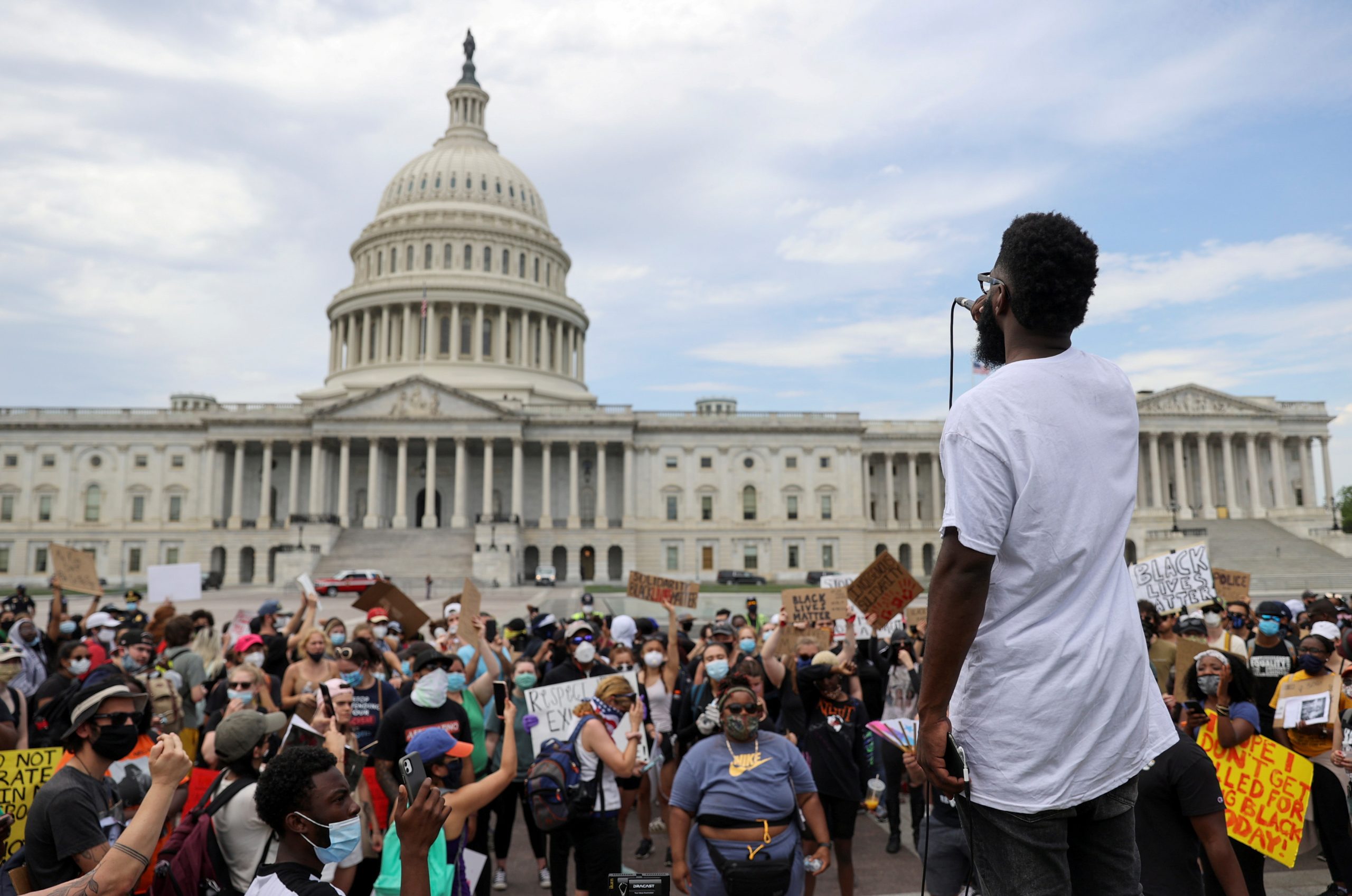Despite a renewed focus on wrongful arrests and racial discrimination after the death of George Floyd, meaningful reform of the massive U.S. criminal justice system is unlikely ahead of the November election, politicians and activists say.
The United States, where evidence points to COVID-19 tearing unchecked through some jails, has the world’s largest prison population and highest incarceration rate, studies show. A toxic relationship between some city police departments and their communities was highlighted by the May death of Floyd, an unarmed Black man who died after a white Minneapolis police office pressed his neck into the pavement.
But Congress has been unable to reach a bipartisan agreement on how to respond to demands for change in recent weeks, making it unlikely in months to come. As such, nationwide protests under the umbrella of the burgeoning Black Lives Matter movement are unlikely to end anytime soon.
“It was kind of shocking, the huge gap between where your congressional Democrats are, where a lot of people in the movement on the ground are and where Republicans appear to be, and I think that’s really disappointing,” said Ames Grawert, senior counsel at the Brennan Center for Justice, a liberal-leaning group, speaking of police reform legislation.
“They’re farther apart than ever,” said Randy Petersen, a former police officer and now senior researcher at the Texas Public Policy Foundation, a conservative group.
BITTER REALITY
On June 25, Democrats in the House of Representatives passed a police reform bill that Republicans have said they are unlikely to support. A day earlier, Democrats in the Senate blocked the Republicans’ reform bill. Both sides have accused the other of acting in bad faith.
The breakdown is especially bitter to members of the Brennan Center, the Texas foundation, and other deep-pocketed groups who helped push through a sweeping prison sentencing reform bill in late 2018, heralded as the most significant change to sentencing in at least a decade.
The First Step Act led to the release of thousands of inmates.
Supporters included Republican President Donald Trump, White House adviser Jared Kushner, billionaire libertarian Charles Koch, celebrity couple Kanye West and Kim Kardashian West, police unions, faith groups and Democratic Senator Cory Booker.
The unusual coalition was no accident, lobbyists and activists who worked behind the scenes say.
They pushed for years to make sentencing reform and police restructuring appear above politics, appealing to religious leaders’ belief in redemption, small government advocates’ belief in budget cuts and civil rights groups’ concern about racial inequity.
“If you have law enforcement and the faith community on the right and then you have civil rights and social justice organizations on the left that has proven to be a strong and muscular coalition,” said Ralph Reed, a Republican strategist and founder of the Faith and Freedom Coalition, which endorsed the 2018 bill.
Republicans claim Democrats, in a position to potentially take control of the Senate and the White House in the November elections, want to avoid giving the president a police reform bill he can sign or a victory he can tout.
Democrats “have decided that it is more politically expedient to align themselves with the angry mob rather than uphold their primary responsibility to protect the American public,” said Republican Senator Ted Cruz in a statement.
Democrats and civil rights groups including the NAACP say they opposed the Republican bill because it relies on incentives to effect reforms and seeks data collection on issues such as no-knock warrants, rather than mandating changes as the Democratic bill does.
It also failed to scale back “qualified immunity,” which shields police from excessive force lawsuits.
Senator Kamala Harris, who is on Democratic presidential candidate Joe Biden’s shortlist for possible running mates, called Republicans’ efforts a “political trap” and “crumbs on the table.”
Reformers say they are still working with both parties behind the scenes to broker a deal. But with little more than 100 weekdays to the election, and Congress out of session for much of the summer, the window of opportunity is closing.
“If we can’t get people in our communities to believe there is justice, and that they can be protected by law enforcement, nothing else is going to matter in our society,” said Mark Holden, a consultant for Koch Industries.
(Reporting by Trevor Hunnicutt in New York and Nandita Bose in Washington; editing by Heather Timmons and Tom Brown)

























 Continue with Google
Continue with Google